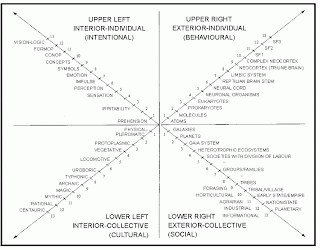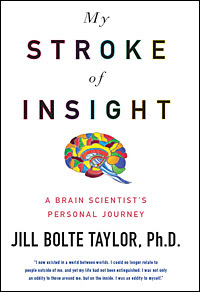I am now reading a book which is not really spiritual, at least at first glance, which has succeeded in making me think about quite a number of spiritual implications of what the author is talking about. Apparently this is not completely unintentional either, as the author does make the occasional references to religion, mysticism, Buddhism and Zen. But that is not the subject of the book by any stretch.
The book is
The Language of Change Elements of Therapeutic Communication by Paul Watzlawick. Here (so that you understand that the spiritual angle I am finding is after all a bit of a stretch) is the official book description:
In this groundbreaking book, a world authority on human communication and communication therapy points out a basic contradiction in the way therapists use language. Although communications emerging in therapy are ascribed to the mind's unconscious, dark side, they are habitually translated in clinical dialogue into the supposedly therapeutic language of reason and consciousness. But, Dr. Watzlawick argues, it is precisely this bizarre language of the unconscious which holds the key to those realms where alone therapeutic change can take place.
Basically, Watzlawick's approach is to say that there are two sides of the brain (I know 'big scoop'! but bear with me). The left hemisphere which is the 'digital' side, the side responsible for counting, logic, language, grammar, syntax, semantics, reading, writing, speaking and, more generally, directed thinking. The right hemisphere is the 'analog' side, the side responsible for associations, dreams, fantasies, perception, intuition, Gestalt, recognizing faces, timelessness, concepts, word games, puns and, more generally, undirected thinking.
According to the author, the right hemisphere perceives with the left hand, left eye, left nostril, left ear. And vice versa. His therapeutic approach, and I am simpilfying greatly, is about getting the left hemisphere out of the way so that he can communicate with the right hemisphere...
In the middle of the brain is the corpus callosum, responsible for inter-hemispheric communication.
What is interesting, too, is that the left hemisphere is also known as the 'verbal' brain and the right hemisphere is also called the 'silent' brain.
Now you may be asking, and rightfully so, "Okay Alon, that is almost interesting, but what is the connection between this quick overview of anatomy and functionality and spirituality?" And you would be right to do so. So let me try and explain at least a few of the associations this raised for me...
First off is the question that is the title of this blog entry, so which side of the brain is the ego on? Since we are told that the ego is our own personal and internal nemesis, hindering us in our ability to see things as they are; since we are told that ego is the little bugger that will not allow us to meditate quietly and keeps on insisting on chatting away as the ego fears silence; as we are told that it is ego that insists on rationalizing and using logic even in areas of faith that defy to a certain degree cerebral reasoning... it seems like ego sounds a lot like Watzlawick's description of the left hemisphere.
But then I began to think about the corpus callosum, sitting so strategically in between the two hemispheres. If I were the ego and wanted to wreak havoc as the ego is purported to wont to do, I would probably sit there. If it is playing a positive role, I see the corpus callosum bridging the two hemispheres. However, the corpus callosum also controls the translation between the two hemispheres, two hemispheres that do not speak the same language and/or speak a similar language in different ways.
How easy would it be then to do a "Lost in Translation" type of translation in which only a minimum of information is communicated?! Or how easy would it be to translate 'slightly off' in order to cause some confusion or 'incommunication'? If the ego is really such a trouble maker, it almost seems too easy.
Further, reading this book, I realized that the duality that Buddhism, Zen, Hinduism and most Eastern spirituality sees as something that is supposed to be transcended so that we can reach unity, see ourselves as one, and merge with the universe... is SO biological. We are trying to overcome our own brain structure which is totally dual. Which might imply that enlightenment is about getting the two hemispheres to work together, or to bridge the two hemispheres so that they work as one, or maybe to think from the corpus callosum rather than either hemisphere or ???
Interestingly many descriptions of enlightenment and meditation, and something mentioned in Eat, Pray, Love (I discussed in a previous blog entry) is the figurative 'blue pearl' which resides somewhere in the middle, or the middle-bottom, of the brain and seems to be the source of the feeling of unique euphoria linked to enlightenment and the feeling of being one with the universe.
Also, since it would seem that, wherever we are spiritually, it would be interesting to connect more and more often to the right side of the brain, the side which understands things intuitively, that sees the bigger picture, that left side of the body meditation techniques could be used. Close your right eye, block your right nostril, put an ear plug in your right ear and then try meditating. I don't meditate very often but the next time I do I will try it. If I come up with anything interesting I will let you know, here.
Finally, if, as many believe, we have chosen to come to earth and live as humans, and having done so we chose to forget our 'godliness', maybe that 'trick' was pulled off by not giving us access to knowledge we already have (you have to know in order to forget), knowledge that is waiting for us in the right hemisphere that the left hemisphere is 'protecting' us from...
But since I came up with this with the left side of my brain, how much credence should we give that idea?



